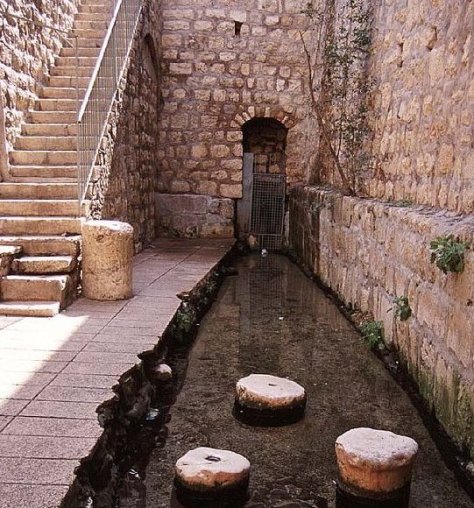Read Philippians 4:4-9
ALSO IN SCRIPTURE
“For I can do everything through Christ, who gives me strength.” (Philippians 4:13)
 My family and I just recently went on a vacation down to South Carolina. The first four days of our vacation were spent at Disney’s Hilton Head Island Resort. One of the things my wife, daughters and I did was go on a two hour kayaking tour of the bay. We all have been kayaking before and we thought that it would be a relaxing way to spend the last morning of our stay at Hilton Head. As we got into our double kayaks, paired up with our children, we quickly realized that the kayaking tour was not going to be a “relaxing”, lazy river experience. The winds had kicked up and the current became rather strong.
My family and I just recently went on a vacation down to South Carolina. The first four days of our vacation were spent at Disney’s Hilton Head Island Resort. One of the things my wife, daughters and I did was go on a two hour kayaking tour of the bay. We all have been kayaking before and we thought that it would be a relaxing way to spend the last morning of our stay at Hilton Head. As we got into our double kayaks, paired up with our children, we quickly realized that the kayaking tour was not going to be a “relaxing”, lazy river experience. The winds had kicked up and the current became rather strong.
At one point, my youngest daughter and I started to get pulled in the opposite direction from the way that the group was going. I started to paddle harder and harder, but it was to no avail. The current was simply to strong. My arms got tired and I became panicked and concerned that we were in a hopeless situation. No matter how hard my daughter and I rowed, we just could not get our kayak to turn around and head in the right direction.
Finally, a light went off in my head. I realized that the whole time we were trying to row against the current. We were trying to rely on our own strength to turn ourselves around and row upstream. Yet, the forces of nature were simply too powerful for my arms and the arms of a 9 year old to row against. But what if I began to row with the current, what if I let go my desire to go against the current, what if I stopped fighting so hard to do what was ultimately impossible?
“Row right, row right,” I called out to my youngest daughter! The second she heard me she caught on to what I was trying to do and began to row with the current in synch with me. As we began to pick up speed, I plunged my paddle into the water on the left side of the kayak and began to feel the vessel turn around. “Shallow ro, shallow row,” I called out! With those words, my daughter began to row quickly on both sides using the double paddle. As she rowed the kayak picked up momentum, turned and before we knew it, we were paddling quickly upstream. With in a moment or two, we caught up to the group and, shortly after, were able to see a pod of dolphins swim gracefully by us only a few feet away.
What this experience taught both my daughter and I is that, often times, we find ourselves caught in a current. Rather, than letting go of our fears and going with the flow, we often find ourselves fighting the current. At best, we find ourselves paddling in place and never going anywhere. At worst, we find ourselves exhausted, lost and hopeless.
If you find yourself in such a situation, if you find yourself rowing against the stream, if you find yourself fighting the current, today’s challenge for you is to let go. Allow yourself to go with the flow and to gain momentum. Remember, you do not have the strength alone to fight the tide. But if you let go of your fears and go with the flow, through the grace of God, you can build moment enough to turn yourself around and paddle to where God is calling you to be. With God, there is no such thing as hopeless. Remember that, let go, and let God take you to those rewarding, refreshing waters.
THOUGHT OF THE DAY
“Don’t stand about on the edge of life afraid to venture in. go with the flow of circumstances. Follow the voice within.” – Unknown
PRAYER
Lord, help me to realize that I have little control over the circumstances in my life; however, I do have the choice to hand my desire for control over to you. Guide my life in the direction you see fit and lead me to where it is you are calling me. Amen.



















